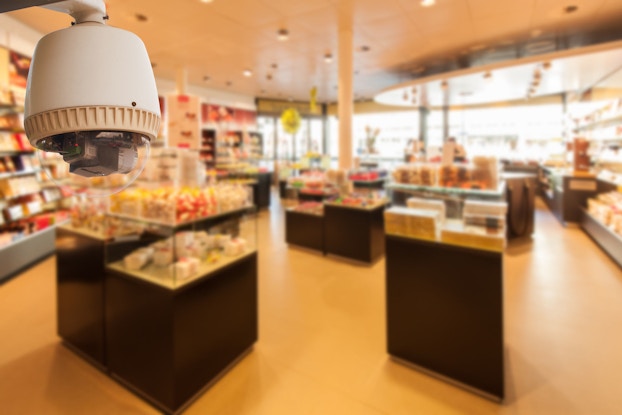
Businesses have a powerful tool at their disposal to combat theft and ensure security: video analytics. This sophisticated technology uses algorithms and artificial intelligence (AI) to process and interpret surveillance footage.
Whether analyzed in real time or post-recording, video analytics can recognize patterns, movements, and specific objects or behaviors, delivering insights beyond mere video footage. Video analytics are not solely about capturing images but about understanding and deriving actionable insights from those images.
From recognizing which products or displays garner the most attention to streamlining employee productivity and staffing, video analytics serves as a cornerstone of operational improvement, said Ken Francis, President of Eagle Eye Networks.
“Security cameras and video surveillance systems are the latest business systems to move to the cloud,” Francis told CO—. “Migration to cloud video surveillance systems has been ongoing for several years but is accelerating for a variety of reasons, including the ability to centrally and remotely manage all cameras in all locations for increased cybersecurity assurance and because of video analytics and AI.”
The role of video surveillance in loss prevention and compliance
Video surveillance systems and their analytics platforms can play an important part in loss prevention efforts. In addition to deterring theft with the presence of cameras and recording evidence in case of incidents, modern video surveillance systems can often integrate with third-party systems, like point-of-sale systems, so business owners can simultaneously view sales data and relevant video footage to identify potentially fraudulent transactions.
Furthermore, surveillance cameras can help adherence to operational standards. In sectors like food service, for instance, video can verify that food preparation meets health and safety standards, mitigating the risks of noncompliance. Advanced AI-powered analytics can even detect potential hazards — be it a spill that may cause a slip or employees nearing hazardous zones — and promptly alert management.
[Read more: How to Prevent Employee Theft]
Having video analytics and AI integrated into the video management system offers greater flexibility and cost-effectiveness.
Using video analytics to prevent theft
By setting up AI-driven alerts based on specified criteria, such as loitering or unauthorized entry into restricted areas, businesses can proactively address potential theft. Cloud-based surveillance systems offer centralized management of multiple cameras across various locations, further fortifying security.
Francis noted that features like AI-powered smart video search enable business owners to search through their footage as easily as they would search the web. By inputting descriptive terms, they can quickly locate suspicious individuals or vehicles.
“Recent advancements in AI features in cloud video surveillance include AI-powered smart video search, which allows business owners to search across all cameras in all locations the same way they search the web,” Francis explained. “For example, they can type in ‘man with red shirt,’ ‘red Toyota car,’ or ‘person with backpack’ to initiate a search across all of their cameras in all of their stores and instantly find the video they need.”
These kinds of video analytics help security and law enforcement make informed decisions during critical incidents, added Francis, who noted that this video data can simplify security and improve operations, customer services, and logistics.
[Read more: Experts Share 5 Proven Ways to Fight Retail Theft]
What to look for in a small business video surveillance system
To maximize the benefits of video analytics, small businesses should choose a surveillance provider wisely. Here are a few important things to look for, according to Francis:
- Remote system management: Remote management capabilities mean that the business owner can centrally manage one camera or several cameras in one or many locations right from their smartphone or laptop, Francis said.
- Continuous software upgrades and security patches: Francis recommended using vendors that continuously upgrade software and provide cybersecurity patches via the cloud. This method saves time and money for business owners, since they don’t have to make manual updates or purchase a new version of software when it’s released.
- Integrated analytics: Having video analytics and AI integrated into the video management system offers greater flexibility and cost-effectiveness.
- Flexibility and scalability: The system you choose should be scalable and allow you to adjust camera counts, analytics usage, or even storage requirements based on your needs at the time, so you only pay for what you need.
- Cloud storage: Finally, said Francis, businesses should look for video surveillance products that offer redundant cloud storage to help them easily meet any legal video storage requirements for their business and for liability protection.
Video analytics, when deployed effectively, can be a game-changer for businesses, especially in theft prevention. By understanding its capabilities and integrating it strategically, businesses can not only enhance security but also gain invaluable operational insights.
CO— aims to bring you inspiration from leading respected experts. However, before making any business decision, you should consult a professional who can advise you based on your individual situation.
CO—is committed to helping you start, run and grow your small business. Learn more about the benefits of small business membership in the U.S. Chamber of Commerce, here.










